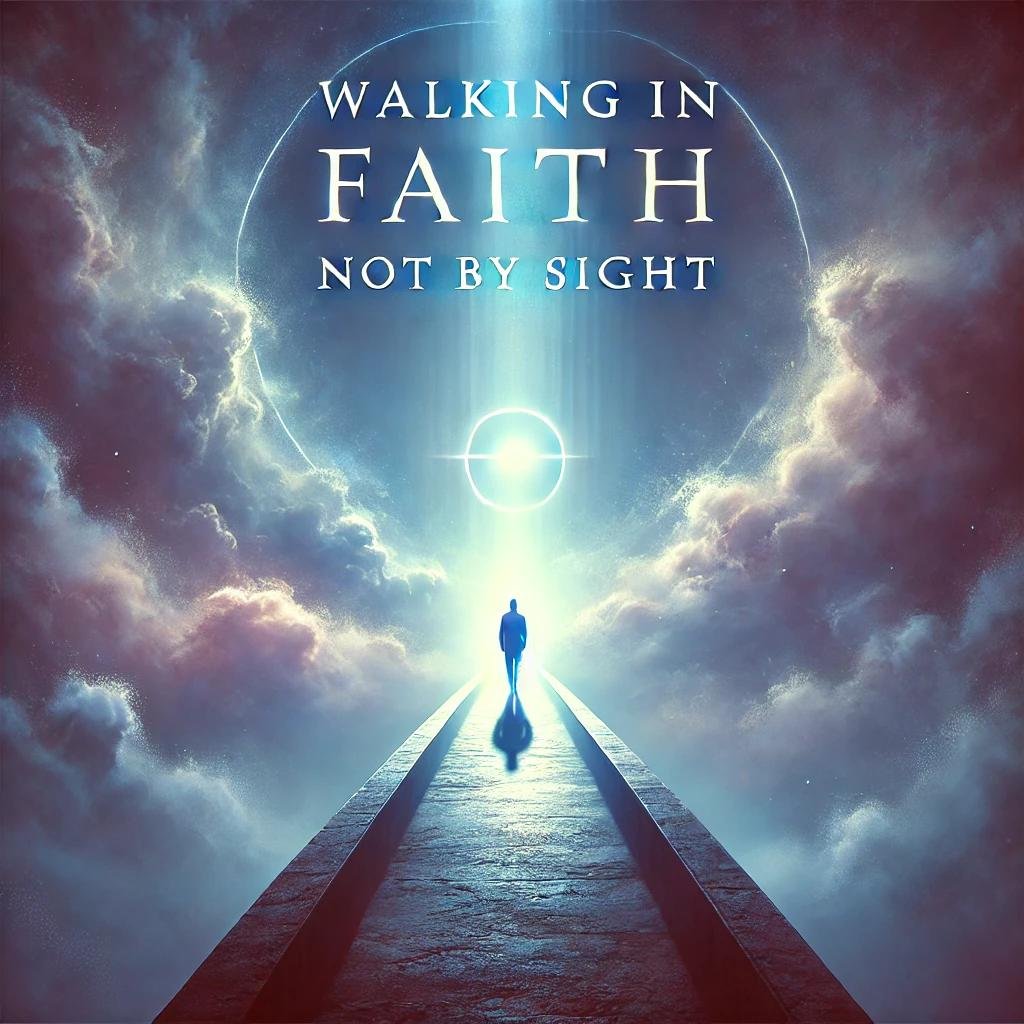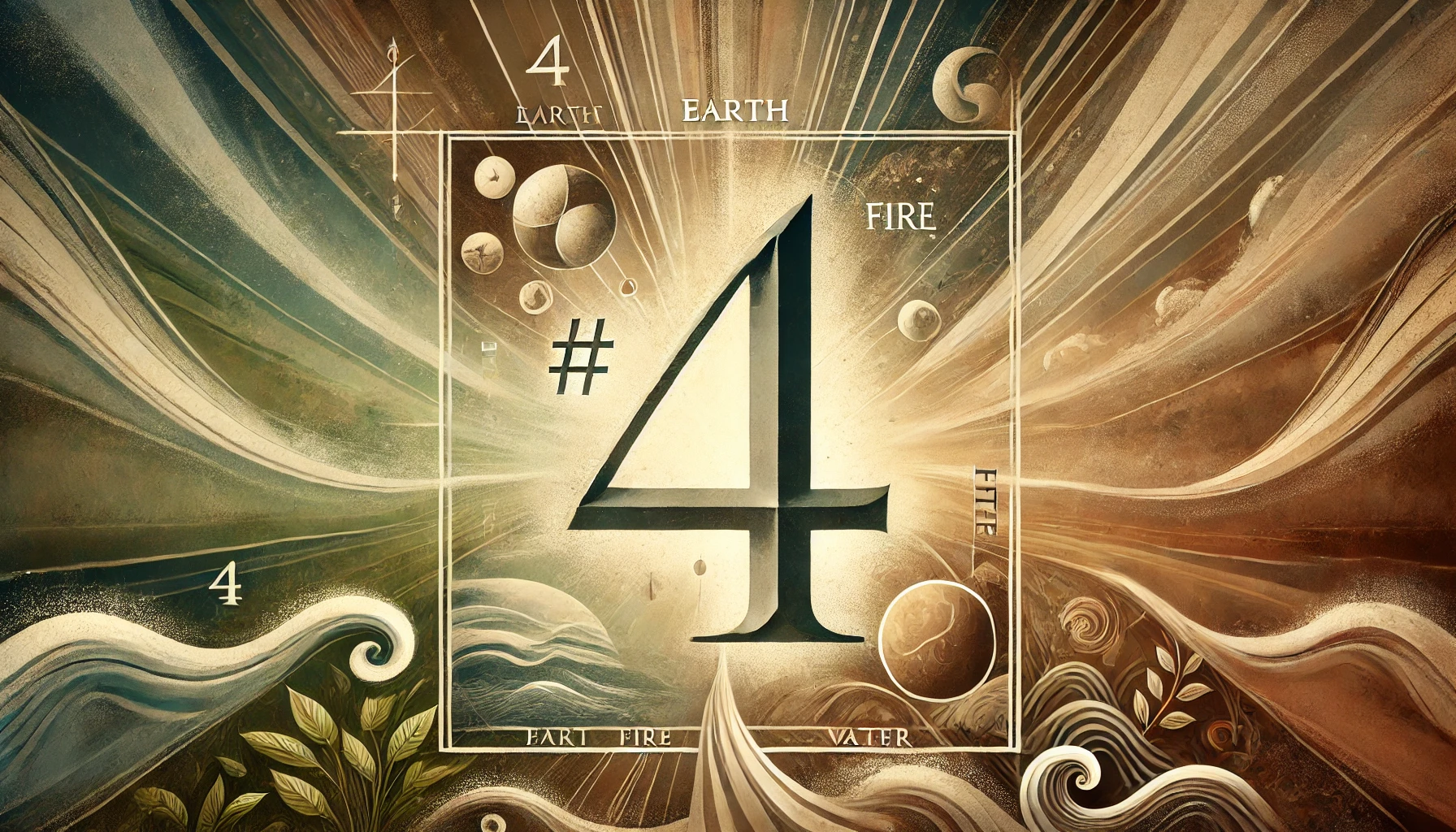The number 4 in the Bible is rich in symbolism and is often associated with themes of creation, the earth, completeness, and universality. It represents the physical world, the order of creation, and the fullness of God’s creative work. Let’s explore these themes in greater detail:
1. Creation and the Physical World
- The Four Corners of the Earth: The number 4 frequently symbolizes the physical creation and the earth itself. In various biblical passages, the “four corners of the earth” are mentioned, representing the entirety of the world and all directions—north, south, east, and west (Isaiah 11:12; Revelation 7:1). This expression underscores the concept of the earth’s totality and the vastness of God’s creation, encompassing all nations and peoples.
- The Four Elements: In the ancient world, the number 4 was often associated with the four basic elements of creation: earth, air, fire, and water. These elements were believed to make up the physical world, and their harmonious interaction was seen as essential for the sustenance of life. While the Bible does not explicitly reference these four elements in this manner, the number 4 is nonetheless tied to the physical components of the created order.
2. Completeness and Universality
- The Four Seasons: The number 4 is also connected to the cycle of seasons—spring, summer, autumn, and winter. These four seasons represent the completeness of time and the cyclical nature of God’s creation. The changing seasons symbolize the order and predictability that God has established in the world, as well as the full range of human experience.
- Universality and Inclusivity: The number 4 can also signify universality and the inclusion of all creation in God’s plan. For example, in the vision of the four living creatures in Revelation 4:6-8, each creature represents a different aspect of creation—a lion (wild animals), an ox (domestic animals), a man (humanity), and an eagle (birds). These four creatures, standing around God’s throne, symbolize the entire created order, all of which is subject to God’s authority and part of His universal kingdom.
3. Order and Structure
- The Four Gospels: In the New Testament, the four Gospels—Matthew, Mark, Luke, and John—provide a complete and ordered account of the life, ministry, death, and resurrection of Jesus Christ. Each Gospel presents a unique perspective, yet together they form a comprehensive and harmonious portrayal of Christ’s mission on earth. The number 4, in this context, symbolizes the completeness and order of the Gospel message as it covers every aspect of Jesus’ life and teachings.
- The Four Pillars: The Bible often uses the number 4 to describe structural elements that represent stability and strength. In Solomon’s temple, there were four pillars that supported the portico (1 Kings 7:15). These pillars were foundational to the structure, symbolizing the strength and stability of God’s house. Similarly, the number 4 can represent the foundational truths that support the faith and practice of believers.
4. God’s Creative Works
- Four Rivers of Eden: In the book of Genesis, the Garden of Eden is described as being watered by a river that divides into four headwaters—Pishon, Gihon, Tigris, and Euphrates (Genesis 2:10-14). These four rivers represent the life-giving abundance of God’s creation, flowing out to nourish the earth. The number 4 here symbolizes the completeness and sufficiency of God’s provision for His creation.
- Four Directions of the Wind: In the Bible, the four winds are often mentioned as coming from the four directions of the earth (Jeremiah 49:36; Ezekiel 37:9; Revelation 7:1). These winds are seen as agents of God’s power and judgment, capable of bringing blessings or calamities upon the earth. The number 4, in this context, signifies the comprehensive nature of God’s sovereignty over the entire world.

5. Judgment and Authority
- Four Horsemen of the Apocalypse: In the book of Revelation, the four horsemen of the apocalypse symbolize God’s judgment upon the earth (Revelation 6:1-8). Each horseman represents a different aspect of divine judgment—conquest, war, famine, and death. The number 4 here is associated with the completeness of God’s authority to judge the world and bring about the fulfillment of His divine plan.
- Four Beasts in Daniel’s Vision: In the book of Daniel, the prophet sees a vision of four beasts, each representing a different kingdom that will rise and fall before the establishment of God’s eternal kingdom (Daniel 7:3-7). These four beasts symbolize the totality of human power and authority that ultimately gives way to God’s sovereign rule. The number 4 in this vision highlights the completeness of God’s control over history and the destiny of nations.
6. Spiritual and Moral Foundation
- Four Points of the Cross: The number 4 is often associated with the cross of Christ, which has four points extending in four directions. This imagery represents the universal reach of Christ’s sacrifice, extending to all corners of the earth and offering salvation to all humanity. The cross’s four points also symbolize the completeness of God’s redemptive work, touching every aspect of human life.
- Four Dimensions of God’s Love: In Ephesians 3:18, Paul prays that believers may “grasp how wide and long and high and deep is the love of Christ.” These four dimensions symbolize the fullness and completeness of God’s love, which surpasses all understanding. The number 4 here represents the boundless nature of God’s love and its ability to reach every person, no matter their circumstances.
7. Prophetic Significance
- Four Kingdoms in Nebuchadnezzar’s Dream: In the book of Daniel, King Nebuchadnezzar dreams of a statue made of four different materials, each representing a successive kingdom (Daniel 2:31-45). The number 4 here represents the completeness of human history and the progression of world empires, leading to the eventual establishment of God’s eternal kingdom. This prophetic vision underscores God’s sovereignty over the rise and fall of nations.
- Four Living Creatures in Ezekiel’s Vision: In Ezekiel’s vision, he sees four living creatures, each with four faces and four wings (Ezekiel 1:5-10). These creatures represent God’s omnipresence and His authority over all creation. The number 4, in this vision, symbolizes the completeness of God’s rule and the universal reach of His power.
8. God’s Providence and Provision
- Four-fold Provision: The number 4 is often associated with God’s provision for His people. In the wilderness, God provided the Israelites with manna for four decades, sustaining them throughout their journey to the Promised Land (Exodus 16:35). This fourfold provision represents the completeness of God’s care and His faithfulness in meeting the needs of His people.
- Four-fold Redemption: In Exodus 6:6-7, God promises the Israelites a four-fold redemption: “I will bring you out…I will rescue you…I will redeem you…I will take you as My people.” These four promises signify the complete and total deliverance that God offers to His people, highlighting the comprehensive nature of His salvation plan.
9. Completeness in Creation
- Fourfold Witness: The Bible sometimes uses the number 4 to emphasize the completeness of a testimony or witness. For example, in the Gospels, there are four women specifically mentioned at the cross of Jesus (John 19:25). This fourfold witness underscores the completeness of the testimony to Christ’s crucifixion, ensuring that it is fully attested and remembered.
- Four Living Beings Around God’s Throne: In the book of Revelation, the four living beings around God’s throne represent the entirety of creation worshiping God (Revelation 4:6-8). These beings—each with a different appearance—symbolize all of God’s creation giving Him glory, honor, and praise. The number 4, therefore, is a symbol of the completeness and universality of worship that is due to God.
10. Moral Integrity and Law
- Four Tenets of Moral Law: The number 4 can also be associated with moral integrity and the law. In the Ten Commandments, the first four commandments deal with our relationship with God (Exodus 20:3-11), while the remaining six address our relationships with others. The four commandments focused on God emphasize the completeness of our duty to Him—worshiping no other gods, avoiding idolatry, honoring God’s name, and keeping the Sabbath holy.
- Four Virtues of a Righteous Life: The Bible often presents lists of four virtues or qualities that characterize a righteous life. For example, in Philippians 4:8, Paul exhorts believers to focus on “whatever is true, whatever is noble, whatever is right, whatever is pure.” These four virtues represent the completeness of a life lived in accordance with God’s will, reflecting moral integrity and spiritual wholeness.
11. Symbol of Universality
- Four Corners of the Earth: The phrase “four corners of the earth” is used metaphorically in the Bible to represent the entire world. This symbolism signifies the universality of God’s sovereignty and the global reach of His power and authority. It also reflects the inclusion of all peoples in God’s redemptive plan, as His love and salvation extend to every corner of the globe.
- Four Directions of the Wind: The Bible frequently mentions the four winds—north, south, east, and west—as symbols of God’s control over the natural world (Jeremiah 49:36; Matthew 24:31). These winds represent the farthest reaches of the earth and the comprehensive nature of God’s authority over creation. The number 4, in this context, signifies the universality of God’s influence and His ability to direct the course of history.
In summary, the number 4 in the Bible is deeply symbolic, representing the earth, creation, completeness, and universality. It signifies the totality of God’s creation, the fullness of His provision, and the completeness of His plan for the world. The number 4 underscores God’s sovereignty over the physical and moral order of the universe, as well as His comprehensive care for all creation. Through this number, the Bible communicates the idea of divine order, stability, and the inclusion of all people and nations in God’s eternal plan.
4o

Leave a Reply